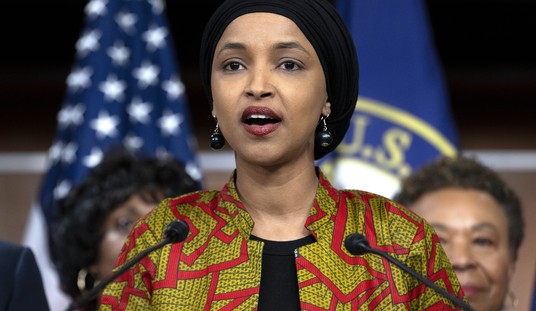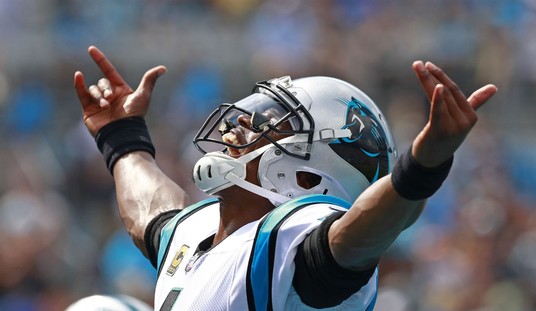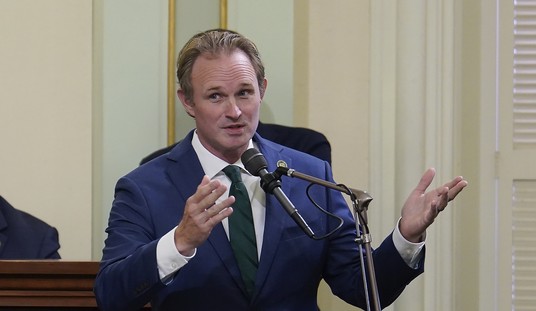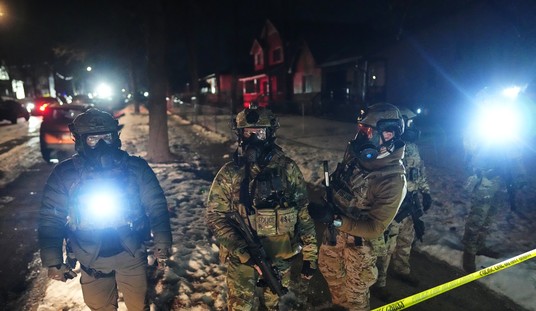 There are 2,286 delegates awarded in the GOP primaries and caucuses; the nomination thus requires wrapping up 1,143 delegates. Between them, Iowa and New Hampshire award 10 delegates; South Carolina and Florida, the other two states voting later this month, award 75. By contrast, three states (California, Texas and New York) award a combined 422 delegates, more than a third of the total needed to win. So, the race is far from over after New Hampshire, and as long as there is credible opposition, it can go on for quite a while after South Carolina and Florida as well.
There are 2,286 delegates awarded in the GOP primaries and caucuses; the nomination thus requires wrapping up 1,143 delegates. Between them, Iowa and New Hampshire award 10 delegates; South Carolina and Florida, the other two states voting later this month, award 75. By contrast, three states (California, Texas and New York) award a combined 422 delegates, more than a third of the total needed to win. So, the race is far from over after New Hampshire, and as long as there is credible opposition, it can go on for quite a while after South Carolina and Florida as well.
That said, the early states are traditionally a test of strength that helps winnow the field to the more serious contenders, especially those with the fundraising ability and appeal beyond a narrow niche to make a serious effort to win the nomination. But three of the seven candidates now in the race are pretty much guaranteed to go beyond Iowa. First, Mitt Romney: Romney would like to win Iowa, and could be embarrassed if he finishes third (lower is very unlikely), but no matter what happens, Romney’s money, his appeal to the moderate wing of the party, and his establishment support will carry him to New Hampshire, where he is heavily favored to win easily. Second, Ron Paul: Paul could do well in Iowa as a protest vote if there are a lot of independents and Democrats re-registering tomorrow on caucus day, but his hard core of support and idosyncratic appeal guarantee that he will be in the race as long as there’s a race, regardless of how he does in any contest, yet with no chance of ever winning. And third, Jon Huntsman: Huntsman has placed all his chips on New Hampshire and already plans on finishing a distant seventh in Iowa. The only effect Iowa has on Huntsman is indirect: if Romney looks weak coming out of Iowa, Huntsman can ratchet up his efforts to convince New Hampshire moderates that Romney is fatally flawed.
Where Iowa could matter a lot, however, is in sorting out the four candidates running as the field’s conservatives: Rick Perry, Newt Gingrich, Rick Santorum and Michele Bachmann. (Let’s leave aside for the moment the arguments over who can claim the term “conservative”; clearly this is the role in the field all four are pursuing). They represent a caucus-within-a-caucus, and even though they are likely to be separated 1-4 by a relatively small number of votes, their order of finish could have an outsized impact on the race, eliminating anywhere from 1-3 of them from the field.
The reason for this is the basic dynamic of this race: after six years of running for President, the polling and anecdotal evidence is quite clear that Mitt Romney is the preferred choice of only about a quarter of the GOP electorate, and at least two-thirds would clearly prefer a more reliably conservative candidate. Paul, for a variety of reasons, can’t present that alternative, and Huntsman won’t. But just as clearly, Romney can win the nomination by a strategy of divide and conquer: keep the conservative wing of the party from putting its votes and money behind a single alternative. His campaign has pursued this strategy craftily, focusing fire on whoever looked likely to dominate the conservative vote at any given time, and more recently by his allies talking up Santorum, an alternative Romney clearly feels he can defeat. It’s a strategy that has relieved Romney of the need to make any sort of positive argument on anything other than the faults of various conservative Republicans. But it will be his undoing if, as the race proceeds, he fails to prevent the majority faction within the party from uniting around a standard-bearer.
Of the four conservatives, Bachmann is now the most vulnerable to a poor showing in Iowa, assuming that she’s running out of self-interest and not – as some have suggested – as a stalking horse for Romney. Bachmann was born in Iowa, hails from a neighboring state, won the Iowa Straw Poll, has spent a bunch of time in the state, and led the RCP polling average in the state most of the summer with support as high as 27% (higher than Romney has ever polled in Iowa; he’s never cracked 23% after winning 25.2% in 2008), and her social-conservative, evangelical background and message should resonate well in Iowa. Yet, she’s collapsed to single digits and sixth place in most polls, has suffered key organizational losses, she doesn’t have a ton of money in the bank, and – not to be overlooked – unlike the other candidates besides Paul, she actually has to run for re-election in a not-entirely-safe district this fall. If Bachmann finishes fourth of the four, it is hard to see how she justifies staying in the race.
At the opposite end of the scale are the two guys Romney fears: Gingrich and Perry. Newt surged to national and Iowa poll leadership in December on the basis of his massive name recognition and excellent debate performances, and his role as a former Speaker of the House and leader of the 1994 conservative revolution still give him a lot of credibility and goodwill on the Right. Newt could, despite his many vulnerabilities, sustain a campaign with sufficient funding and earned media exposure to beat Romney if he could unite the Right; while polling is somewhat stale at present, he was last seen with significant leads on Romney in South Carolina and Florida, both states in which the other candidates haven’t polled in single digits. Ideally, Newt wanted to beat Romney in Iowa, so he could build the argument that he was the man to stop Mitt. But Newt’s support, much of it cannibalized from the early December collapse of the Herman Cain campaign, is not deeply rooted, and the not-Romney aspect of that support could desert him quickly if he’s shown to be unable to either outpoll Romney or unite the Right. Newt’s poll support in Iowa has dropped in the RCP average from 31 to 13 in a little over two weeks of ceaseless negative TV ads from Romney allies, he’s currently polling fourth, and it’s questionable if Newt has the organization on the ground to capitalize even on that much support. If he finishes far behind Romney and behind Santorum – worse yet, behind Perry as well – Newt’s supporters in the southern states may start taking a harder look at alternatives. It’s hard to see Newt leaving the race without being forced out, but then he’s clearly bitter at Romney right now over the negative barrage; were I Perry (whose last book Newt wrote a forward for), I’d work overtime in the aftermath of a poor Iowa showing by Newt to try to convince Newt to step aside and focus the field.
Then there’s Perry. Let me go out on a limb: if Perry finishes third in Iowa, he’ll be the nominee. He’s the guy best suited by money, organization and resume to capitalize on a strong Iowa showing, which is why Romney’s media allies have been talking up Santorum’s momentum instead. I don’t expect Perry to finish third; he’s polling fifth, and is probably most likely to finish fourth behind Romney, Paul and Santorum. Perry can afford that, if it’s a respectable fourth: if Newt and Bachmann end up out of the race, Perry can make a solid argument that he’s still the only credible alternative to Romney, and his style is clearly more suited to running in southern states like South Carolina and Florida. Perry’s debate stumbles buried him for a while, but more than one candidate in this race has gotten a second look as the wheel continues to turn; but he needs to show that his hard work in Iowa of late has yielded some sort of progress. A fifth place showing behind both Newt and Santorum will put him on the ropes – not out just yet, perhaps, but with a much more complicated road to climbing over both to win South Carolina.
Which brings us to Santorum, the spoiler, only finally drawing attention (and scrutiny). Santorum has almost no campaign outside of Iowa, where he’s spent vastly more time than anyone else in the race, doing endless, weary retail events touting his social conservatism. It’s much harder to envision Santorum scaling up to a national race against Romney than it is with Newt, and just as Newt bears the scars of the GOP’s failures in the 1996-2000 period, Santorum bears those of 2006, a more recent loss when he – as a member of the Senate GOP leadership – lost the Senate majority, lost his seat by 18 points to a colorless opponent, lost the support of party conservatives over his endorsement of Arlen Specter, lost the party’s credibility on spending, and became a lightning rod for gay activists over his various foot-in-mouth moments on social issues. Santorum is an ex-Senator with no executive experience, and Senators are famously terrible presidential candidates, as we saw in basically every primary and/or general election since 1964 (think of McCain, Kerry, Goldwater, McGovern, Dole, Hillary, Kennedy, Bradley, Biden, Tsongas, Muskie, Edwards, Gramm, Dodd, Byrd, Gore, Brownback, Baker, Bayh, Glenn, Harkin, Hatch, Hollings, Hart, Kerrey, Lugar, Specter, Bentsen, Church, Cranston, Bob Smith, and Scoop Jackson) – the only way a Senator can win a presidential election is against another Senator, as Obama did by beating Hillary and McCain. While there may not be time to ventilate all of Santorum’s problems, the greatest of which is his legacy as a loser in 2006, there is little doubt that Romney could and would destroy him once he’s no longer useful in denying oxygen to more capable adversaries. But a top-3 showing in Iowa makes it impossible for Santorum to go away before South Carolina.
The clearest outcome in the conservative primary in Iowa would be for Perry or Newt to win it. The second clearest would be Santorum first and Perry second, which largely deflates Newt and takes out Bachmann. The worst plausible case is Santorum-Newt-Perry-Bachmann, which probably eliminates Bachmann but leaves Newt and Perry both wounded and regrouping for a messy South Carolina showdown.
We’ll finally know more tomorrow.














Join the conversation as a VIP Member